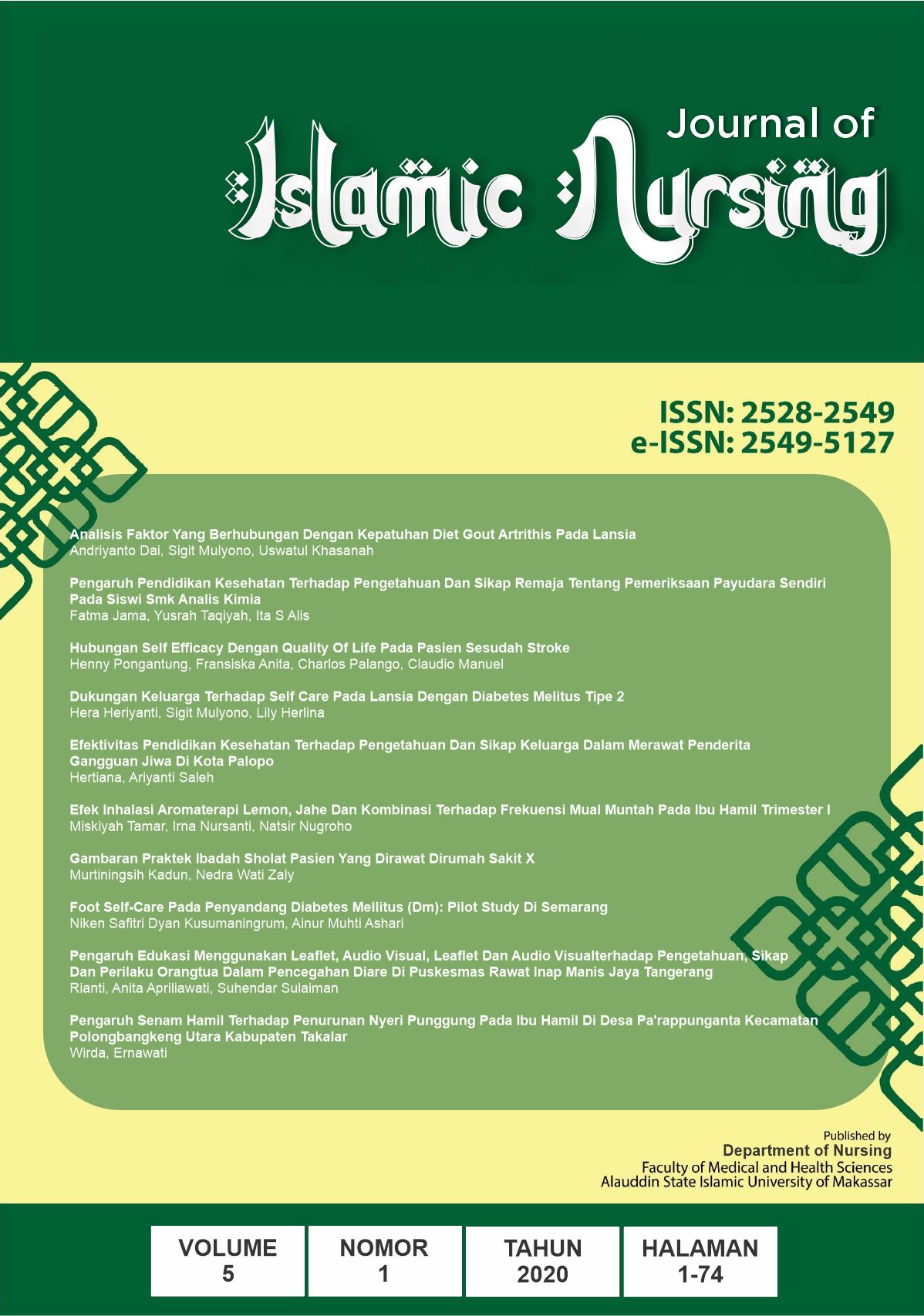DUKUNGAN KELUARGA TERHADAP SELF CARE PADA LANSIA DENGAN DIABETES MELITUS TIPE 2
Abstract
Elderly is a population of risk that has limitations caused by the deterioration of various systems. Elderly accompanied by chronic DM disease and lack of support system results in elderly with DM entering the vulnerable group. Therefore, the elderly with DM need help to support their quality and satisfaction of life. The support is very much needed especially from the family, because the family is an element that is very closely related to the elderly. For this reason, it is expected that the family can support in the form of attention, can receive, give love so that the elderly are able to do self-care. Objective: this study aims to determine the relationship of family support for self-care in the elderly with type 2 diabetes. Method: quantitative research with descriptive observational research design with cross sectional approach. The population in this study were all elderly with DM type 2 in the work area of PuskesmasWara Selatan of Palopo City as many as 153 people. The sampling technique used is nonprobability sampling with a sample of 121 people. Data collection uses questionnaire respondent characteristics, family support, and self-care. Results: From the analysis it was found that the variable most related to self-care was emotional support with the value Exp (B) = 10.875. Conclusion: It is hoped that health workers in the health center of South Wara will further promote health promotion regarding the importance of family support to improve self-care and health status of the elderly with DM. Keywords: DM type 2, Family Support, Self-CareDownloads
References
Alligood, M.R & Tomey, A.M. (2006). Nursing theory : uilizaion & application. 3 ed. Missouri : Mosby.
American Diabetes Association. (2017). Standards of Medical Care in Diabetes. Vol 40. USA : ADA. Diakses pada tanggal 25 Desember 2018.
Black, M. J & Hawks, H. J. (2009). Medical surgical nursing : clinical management for continuity of care, 8th ed. Philadephia : W.B. Saunders Company.
Departemen Kesehatan RI. 2008. Riset Kesehatan Dasar 2018. Litbangkes Departemen Kesehatan RI. Jakarta.
Depkes (2017). Tekan Angka Kematian Melalui Program Indonesia Sehat Dengan Pendekatan Keluarga. http://www.depkes.go.id/pdf.php?id=17061600003 diakses tanggal 19 Desember 2018.
Dinas Kesehatan Kota Palopo. 2017. Profil Kesehatan Kota Palopo. https://www.kemkes.go.id/resources/download/profil/PROFIL_KAB_KOTA_2017/7373_Sulsel_Kota_Palopo_2017.pdf diakses 19 desember 2018.
Dinkes Provinsi Sulawesi Selatan. 2015. Profil Kesehatan Provinsi Sulawesi Selatan. http://www.depkes.go.id/resources/download/profil/PROFIL_KES_PROVINSI_2015/27_Sulsel_2015.pdf diakses tanggal 20 desember 2018.
Friedman, M. M., Bowden, V. R., & Jones, E. G. (2010). Buku ajar keperawatan keluarga: Riset, Teori dan Praktek. Jakarta: EGC, 5–6.
IDF. (2014). IDF Diabetes Atlas, http://www.idf.org diakses pada tanggal 20 Desember 2018.
PERKENI. (2015). Konsesus Pengelolaan dan Pencegahan Diabetes Melitus Tipe 2 di Indonesia. Perkumpulan Endokrinologi Indonesia.


